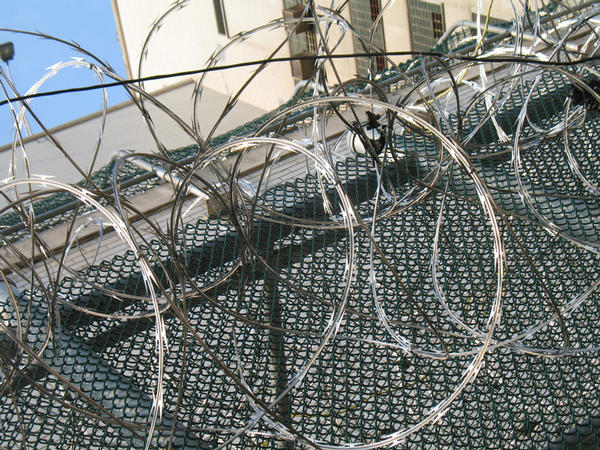
Outside the lockup at Queens Criminal Court.
Among the proposals Speaker Melissa Mark-Viverito and Council allies made in their Preliminary Budget Response on Tuesday was a call for a city-underwritten bail fund.
Coming the same day Mayor de Blasio proposed other reforms aimed at keeping pre-trial detainees off Rikers Island or getting them out of city jails sooner, it was an indication of just how much the conversation has changed since Mayor Bloomberg ran the city’s jails.
Back in 2004, the Bloomberg administration patted itself on the back for increasing the number of people detained on bail, and for the better part of the previous mayoralty, arrests for misdemeanors were astronomically high.
Mark-Viverito’s fund would serve people charged “with low level misdemeanors with bail set at $2,000 or less.” Statistics from the city’s Criminal Justice Agency indicate that nearly three-quarters of all non-felony cases in which bail was set saw bails of $1,000 or less. So the speaker’s proposal would affect nearly all misdemeanor cases involving bail.
According to CJA, of the 22,000 non-felony cases—those would include misdemeanors and violations, like disorderly conduct—processed by city courts in 2013, 48 percent of them were disposed before the defendant actually made bail. In cases where bail was set at $500 or less that year, 46 percent of defendants never made bail.
As City Limits’ 2007 bail investigation found, low bails can be harder for defendants to pay because the money involved is too little to make it worth a commercial bail-bondsman’s time and capital.
Our reporting and a subsequent Human Rights Watch report found that bail perverted the course of justice in a number of ways, including encouraging people to plead guilty just to get out of jail, with serious fiscal and human costs.







